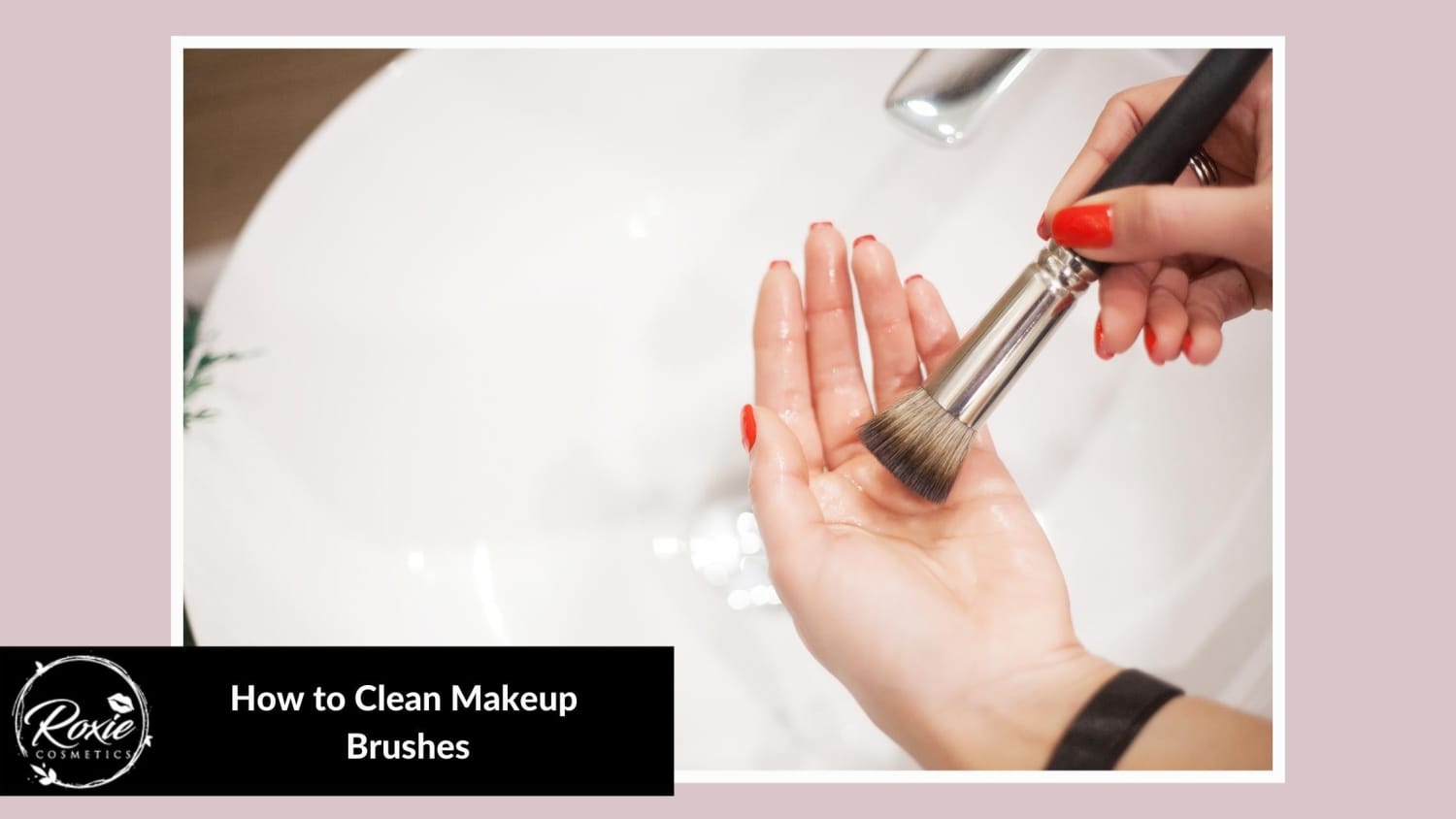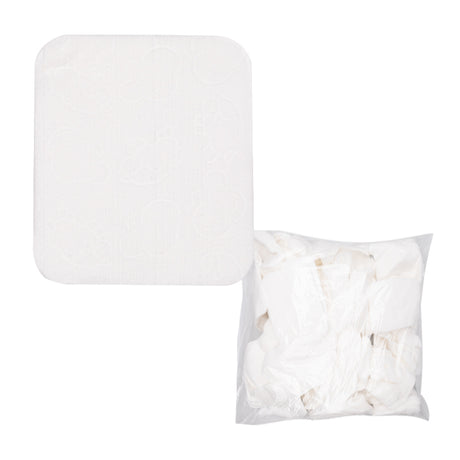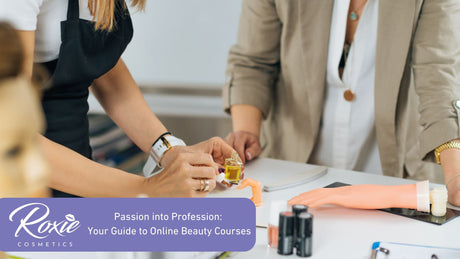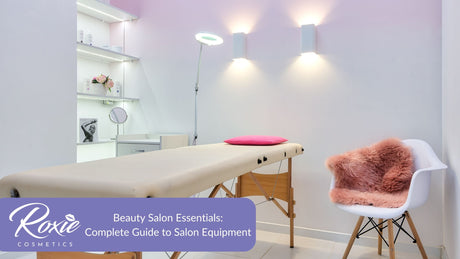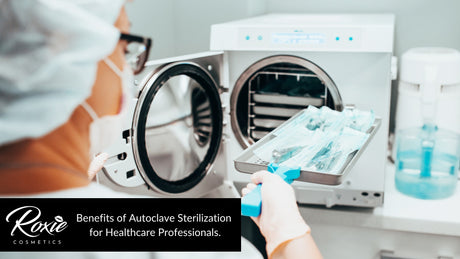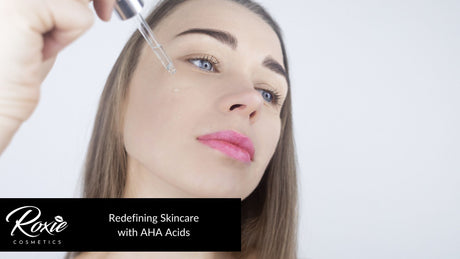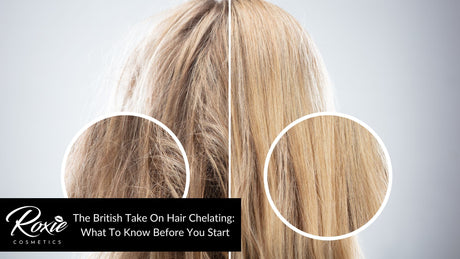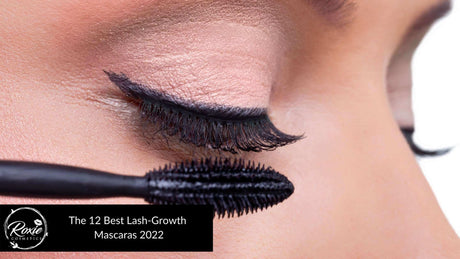Most people are guilty of ignoring their makeup brushes, allowing powder and cream formulas to build upon the bristles for weeks at a time, or using multiple colours without cleaning in between. But, according to the professionals, it's important to spend at least a few minutes each week removing the debris to avoid bacteria growth, acne, and other unpleasant skin issues. Brushes are considered by many makeup artists to be the most important step in achieving great makeup, so if it's been a while since one has lathered up their own, it's time to get deep-cleaning. Ideally, the brushes should be cleaned every time they are used, but this may be difficult for most people. Brushes used with powders should be cleaned once or twice a week for powder makeup, such as blushes and bronzers. Brushes used with liquid foundations, concealers, or creams should be cleaned on a daily basis because they are more likely to harbour bacteria that can cause infections. Water and a gentle soap or brush cleanser are required for the best and most thorough cleaning of makeup brush tools. There are plenty of alternative cleaning staff and cleansers designed specifically for cleaning brushes. Baby shampoos, ivory soap, dawn dish soap, makeup brush cleaners, and textured cleansing mats are all examples. While olive oil and vinegar are frequently mentioned as brush cleaning solutions, it is best to just keep those in the kitchen.
1. Wash the makeup brushes.

Brushes should be hand washed in lukewarm water with antibacterial soap or silicone-free baby shampoo. Dip each brush separately under running water, then into a bowl of gentle shampoo or soap, and rub gently with fingers for a few minutes to get a good lather. Prevent getting water above the brush's handle, as this can cause the glue to loosen over time, resulting in shedding bristles and, eventually, a ruined brush. This process is important because dirty makeup brushes can wreak havoc on the skin, causing far more damage than just a breakout or skin irritation.
2. Swirl the makeup brushes.

Makeup users should apply their favourite cleanser to their hands, then gently swirl the brush across their palm in gentle circular motions, making sure the entire brush is saturated. At this stage, people can also use a brush cleaning mat. Rinse the soap and product residue out of the brush after it has been sudsy. If the water does not run clean, repeat steps 1-2, making sure the water does not touch the brush's handle. Soaking the brush handles will damage and dissolve the glue that holds the bristles to the brush handle, resulting in brush shedding. To release excess water, gently press the fingers on the bristles. Don't yank on it too hard. It is critical not to skip this step because product build-up can affect the shape of the brush, as well as its ability to pick up and lay down pigment and blend properly. Taking care of the makeup brushes allows for a more flawless application of makeup products.
3. Repeat the first two steps until there's no residue left.

Repeat the cycle if there is still residue on the brush. If not, keep squeezing out the brush and lay it flat on a towel next to the sink to dry. This prevents water from draining into the handle and rotting the wood or removing the glue. The washing machine is not a viable alternative. The heat from the machine will break down the glue that binds the brush to the handle, so the manual method is preferable. Cleaning your own makeup brushes may be another chore to add to the weekly cleaning schedule, but it has a positive payoff. Cleaning brushes on a regular basis will aid in the improvement of one's skin.
4. Dry the makeup brushes.

Lay the brushes flat over the sink, at a downward angle, or with the brush heads pointing downwards if possible. Avoid using hot hair dryers and allow enough time for the brushes to dry the next day. When the temperatures are cooler, the larger brushes, in particular, do not always dry overnight. Investing in makeup brushes is similar to investing in a high-quality set of kitchen knives for cooking or paintbrushes for artists. Taking care of one's own tools will help them last longer and protect one's investment while they continue to produce good results.
What are the benefits of clean makeup brushes?
Unwashed makeup brushes are a breeding ground for bacteria, and they can clog one's pores and dull their skin. Though it may appear to be a chore at times, washing makeup brushes is an absolute necessity. Once a week is ideal, and once a month at the very least, they should be polished up. The advantages of clean makeup brushes include the fact that clean brushes apply makeup more effectively. When applied with a dirty brush, even the best makeup can become streaky and patchy. A clean brush will result in a smoother application. Brushes collect bacteria over time. The more thoroughly you clean them, the less acne-causing bacteria you spread on your skin. Brushes, besides bacteria, collect dead skin cells and oil, which can clog the pores and cause dull or broken-out skin. Regular cleaning keeps the bristles soft, making them less irritating to the skin. Brushes that have been thoroughly cleaned last longer. That means people won't have to part with their favourite brushes as quickly, and they'll save money because they won't have to replace them as frequently.
What can you use to clean makeup brushes?
The best and most thorough cleaning of makeup brush tools requires water and a gentle soap or brush cleanser. There are many makeup brushes cleanser designed specifically for cleaning brushes. Examples include baby shampoos, ivory soap, Dawn dish soap, makeup brush cleaners, and textured cleansing mats. While olive oil and vinegar are frequently mentioned as brush cleaning solutions, they should be kept in the kitchen. Baby shampoo is widely used to clean brushes, and it works extremely well. These gentle formulations are designed specifically for cleaning natural fibre brushes. Ivory soap, which is used to break down heavier formulas, effectively removes liquid makeup from brushes. Dawn dish soap is excellent for thoroughly cleaning makeup sponges and beauty blenders and quickly emulsifying oil-based foundations and concealers. Makeup brush cleaners are specially designed to clean makeup brushes. EcoTools Makeup Brush Shampoo, Real Techniques Brush Cleaner, and French Nerds The Nerdiest Brush Cleanser are some of the brush cleanser brands. Textured cleansing mats that fit comfortably in the palm of the hand and are simple to use. Small mats that come with cleaning soap are ideal because they are sufficient for the job and require no additional storage.
What is the best way to clean makeup brushes?
A thorough cleaning of makeup brushes once a month or so is insufficient. Dermatologists and makeup artists agree that people should clean up their tools far more frequently to prevent bacteria build-up, which can lead to breakouts. Wet the bristles of the makeup brushes with lukewarm water to clean them. Put a drop of the preferred cleanser into the palm of a clean hand. Massage the bristle tips in the palm gently. Thoroughly rinse the bristles. Using a clean towel, squeeze out any excess moisture. Return the brush head to its original shape. Allow the brush to dry with its bristles dangling off the edge of a counter, allowing it to dry in the proper shape. Never dry the brushes on a towel because the bristles can become mildewy. Keep the brush head's base (where it connects to the handle) away from soap and water during the wash. Water and detergent can cause the glue to disintegrate, causing the bristles to detach and shed. Also, avoid drying brushes vertically with the bristles up, as this can cause water to leak into the ferrule (the piece that connects the bristles to the handle), loosening the glue and resulting in bristle loss.
How often should you clean your makeup brushes?
Cleaning brushes and washing brushes are both available. Cleaning should be done once a week, and washing should be done once a month using a mild soap. Foundation, concealer, and powder brushes should be cleaned once a week. Eye brushes and brushes used for different shades should be cleaned in between uses. Remember that gross leftover makeup, dirt, and oil disappear after a thorough brush cleaning. If a person is a makeup artist or simply wears a lot of makeup on a regular basis, it is highly recommended that she clean the brushes after each use.

